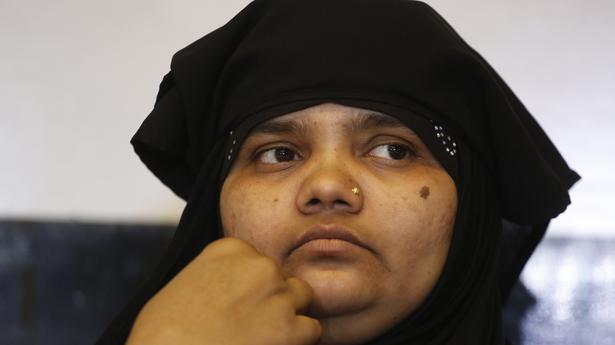
Past judgments could aid SC in taking up remission of Bilkis Bano case convicts
The Hindu
Civil rights groups have urged the Supreme Court to revoke the remission of the 11 convicts
The Supreme Court has enough ammunition in the form of past judgments to examine the Gujarat Government’s premature release of 11 convicts who were sentenced to life imprisonment for the 2002 Bilkis Bano gangrape case.
For one, on April 23, 2019, the court, while awarding her ₹50 lakh in compensation, described how the “brutal, diabolic, gruesome, horrific acts of violence” committed on her has left an “indelible imprint on her mind which will continue to torment and cripple her”.
The apex court had noted that the then 21-year-old and pregnant Ms. Bilkis was “repeatedly gangraped”. She was a “mute and helpless witness to her three-and-a-half-year-old daughter butchered to death”. She had lost all the members of her family while fleeing the mayhem and violence of the 2002 riots. The court said she had lived the life of a nomad, an orphan.
The State government’s decision to remit the sentence of the 11 convicts has raised a furious public outcry. Civil rights groups have urged the Supreme Court to revoke the remission. Ms. Bilkis’s family has told the media that they are scared of what may happen to them in the future.
It was as recently as in April 2022 that an apex court Bench led by Justice D.Y. Chandrachud had said that the state cannot exercise its remission powers arbitrarily.
The court, in State of Haryana Vs. Mohinder Singh, has underscored that the grant of remission should be “informed, fair and reasonable”.
In Rajan Vs. Home Secretary, Department of Tamil Nadu, the top court has held that “grant of premature release is not a matter of privilege but is the power coupled with duty conferred on the appropriate government”. The court has said that “remission should not undermine the nature of crime committed”.











